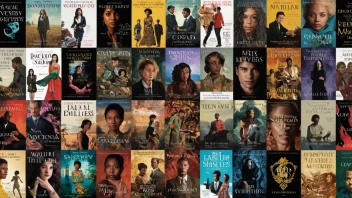Redemption is a timeless theme that resonates deeply within the human experience, encapsulating the struggle for forgiveness and the quest for atonement. In fiction literature, this theme has been explored through various characters, narratives, and genres, allowing readers to engage with profound moral questions and emotional journeys. From classic novels to contemporary works, the exploration of redemption serves not only as a plot device but also as a vehicle for character development and thematic depth. This article delves into the multifaceted nature of redemption in fiction, examining notable examples, underlying motifs, and its significance in the broader literary landscape.
Understanding Redemption
The concept of redemption often intertwines with ideas of sin, guilt, and forgiveness. It invites readers to reflect on the possibility of change and the potential for individuals to overcome their past mistakes. Redemption can manifest in various forms, such as personal transformation, reconciliation with others, or even spiritual awakening. This section will define redemption in a literary context and explore its psychological implications.
Defining Redemption
In literature, redemption typically refers to the process through which a character seeks to make amends for their wrongdoings. This journey often involves significant inner conflict, as characters grapple with their past actions and their consequences. Redemption can be portrayed as a gradual process, highlighting the complexity of human emotions and moral dilemmas.
The Psychological Dimension
The psychological aspect of redemption is crucial in understanding characters’ motivations and actions. Characters may experience guilt, shame, or a desire for forgiveness, driving them to seek redemption. This exploration can lead to rich character arcs, as authors delve into the psyche of individuals striving for a second chance. Through their struggles, readers may find relatability and insight into their own lives.
Notable Examples of Redemption in Fiction
Numerous literary works feature redemption as a central theme, each presenting unique perspectives and narratives. In this section, we will examine several prominent examples across different genres, analyzing their portrayal of redemption and its impact on character development.
Classic Literature
Classic novels have long grappled with themes of redemption, allowing readers to engage with profound moral questions that transcend time. One of the most notable examples is Charles Dickens' A Christmas Carol, where the transformation of Ebenezer Scrooge from a miserly, self-centered man to a benevolent figure illustrates the power of redemption. Through supernatural encounters, Scrooge confronts his past and ultimately seeks to change his future, embodying the potential for personal growth.
Modern Fiction
In contemporary literature, redemption continues to be a prevalent theme. Khaled Hosseini's The Kite Runner serves as a poignant exploration of guilt and redemption. The protagonist, Amir, embarks on a journey to atone for his childhood mistakes, confronting his past and seeking forgiveness from those he has wronged. The novel highlights the complexities of redemption, emphasizing that it often requires not only personal transformation but also the courage to face painful truths.
Science Fiction and Fantasy
Even in speculative genres such as science fiction and fantasy, redemption plays a crucial role. In the epic tale of The Lord of the Rings by J.R.R. Tolkien, Gollum's struggle for redemption is intricately woven into the narrative. His duality as both a villain and a tragic figure showcases the theme of redemption in a fantastical context, illustrating that even the most corrupted souls can seek a path to redemption, albeit fraught with challenges.
The Role of Redemption in Character Development
In fiction, redemption is often intricately linked to character development, providing a framework for growth and change. Characters who seek redemption frequently undergo significant transformations, making their journeys compelling and relatable. This section will explore how redemption shapes character arcs and influences reader engagement.
Character Arcs and Growth
Redemption arcs often involve a character's realization of their flaws and the consequences of their actions. This self-awareness is crucial for character development, as it allows them to evolve and grow. The process of seeking redemption can also lead to deeper relationships with other characters, as themes of forgiveness and reconciliation come to the forefront. Authors skillfully craft these arcs, engaging readers emotionally and prompting them to reflect on their own understanding of redemption.
Reader Engagement
Readers are often drawn to stories of redemption due to their universal themes of hope and transformation. Characters who grapple with their past and seek to make amends resonate with audiences, as these struggles mirror real-life experiences. The emotional investment in these journeys can lead to profound reflections on morality, forgiveness, and the human capacity for change.
Literary Trends and the Evolution of Redemption
The portrayal of redemption in fiction has evolved over time, reflecting societal values and cultural shifts. This section will examine current literary trends related to redemption, exploring how contemporary authors are reinterpreting this age-old theme.
Diverse Perspectives on Redemption
Modern literature increasingly emphasizes diverse perspectives on redemption, highlighting voices and experiences that have historically been marginalized. Authors are exploring redemption through various lenses, including race, gender, and socio-economic status, offering fresh insights into the complexities of human experience. This shift enriches the narrative landscape, allowing readers to engage with redemption in multifaceted ways.
Redemption in Young Adult Literature
Young adult literature has also embraced the theme of redemption, often focusing on characters navigating the challenges of adolescence. Stories like The Perks of Being a Wallflower by Stephen Chbosky explore the journey of self-discovery and the quest for forgiveness among teenagers. These narratives resonate with young readers, providing relatable experiences and fostering discussions about mental health, identity, and personal growth.
The Importance of Redemption in Literature
Redemption serves as a powerful vehicle for exploring moral complexities and the human condition in literature. Its significance extends beyond the narrative itself, inviting readers to engage with fundamental questions about forgiveness, empathy, and the potential for change. This section will discuss the broader implications of redemption in literature and its lasting impact on readers.
Moral Reflection
Literary explorations of redemption prompt readers to reflect on their values and beliefs. By immersing themselves in the struggles of characters seeking redemption, readers are encouraged to consider their own capacity for forgiveness and empathy. This moral reflection can lead to personal growth and a deeper understanding of human relationships.
Fostering Empathy
Stories of redemption cultivate empathy by allowing readers to connect with characters on an emotional level. As readers witness the challenges faced by those seeking redemption, they are invited to step into the shoes of others, fostering a greater understanding of diverse experiences and perspectives. This emotional engagement can create a ripple effect, promoting compassion and understanding in the real world.
Conclusion
In conclusion, the theme of redemption in fiction literature serves as a profound exploration of the human experience, inviting readers to engage with moral complexities and emotional journeys. Through notable examples across various genres, redemption is portrayed as a multifaceted concept that shapes character development and fosters reader engagement. As literature continues to evolve, the exploration of redemption remains a vital aspect of storytelling, offering insights into the potential for change, forgiveness, and the enduring power of hope. By examining redemption in fiction, we gain not only a deeper appreciation for literary works but also valuable reflections on our own lives and the possibilities for transformation.






